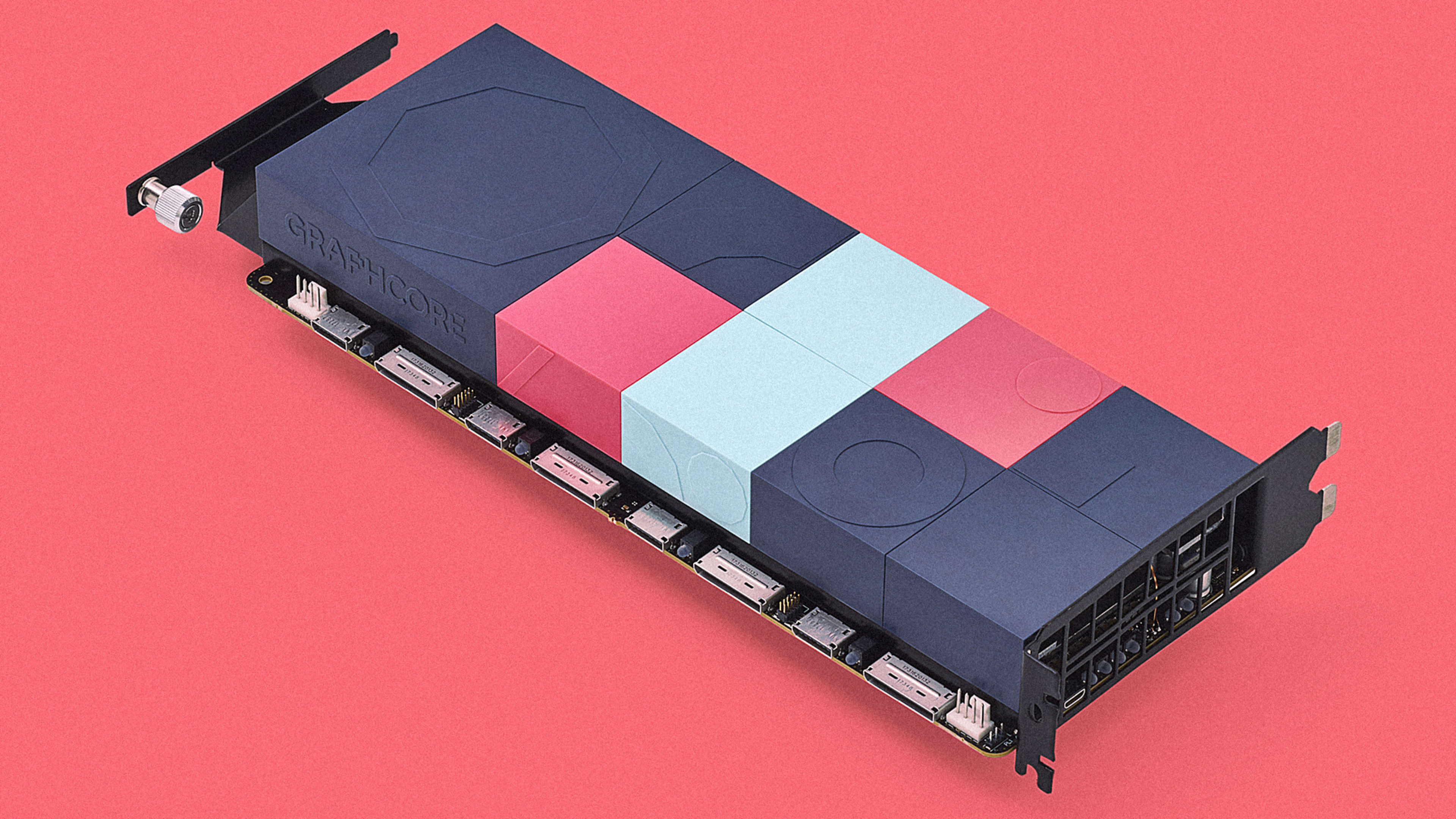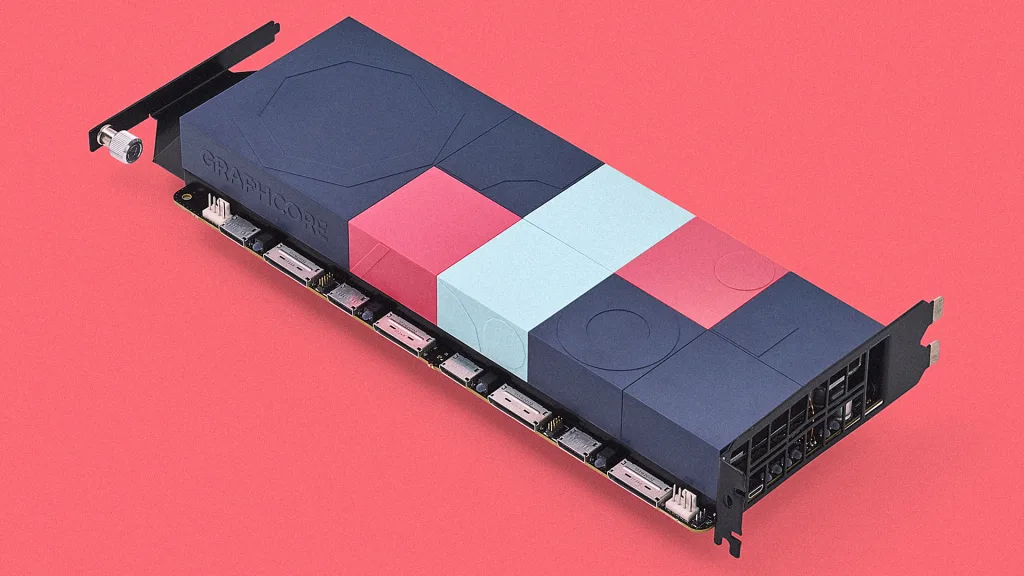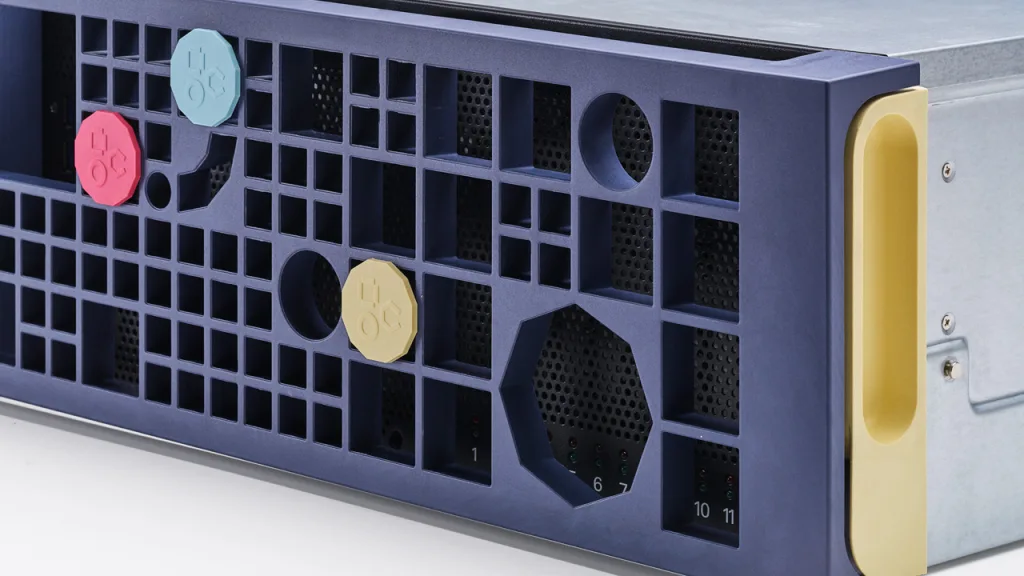Computer chips work behind the scenes, powering your internet surfing, video streaming, and gaming. Because they’re just little bits of hardware, the engineers that make them rarely spend time thinking about what they should look like. After all, most people will never even see them.
Yet the prominent design agency Pentagram and industrial design studio Map Project Office recently created a downright gorgeous computer chip for the the U.K.-based startup Graphcore. Why bother? Because as so much of our computing is moving into the cloud, Graphcore’s chips, which are designed to run machine learning algorithms, will mostly be located in server farms. And the company, with help from Pentagram and Map, is betting on design to help it stand out on the server rack–even if the only people that ever see the chips are the engineers who maintain the servers.
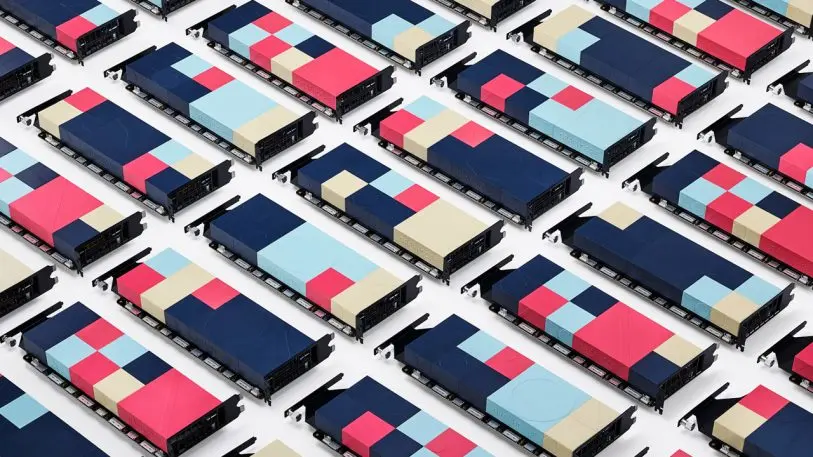
That’s a big reason why Map created a series of plastic tiles that can snap onto Graphcore’s microprocessor. Each tile, which is made from the same plastic as a Lego brick, has an algorithmically generated pattern that makes it distinct. The tiles alternate between bubblegum pink, navy blue, and pale blue, with embossed geometric shapes to create a subtle pattern. This industrial design doesn’t have a technical purpose and exists purely to extend the company’s graphic identity onto its hardware. But Graphcore was so supportive of how the colorful tiles might help the company raise brand awareness in server farms that the company’s engineers created a custom heat sink to ensure enough airflow to keep the device cool with the tiles on top.
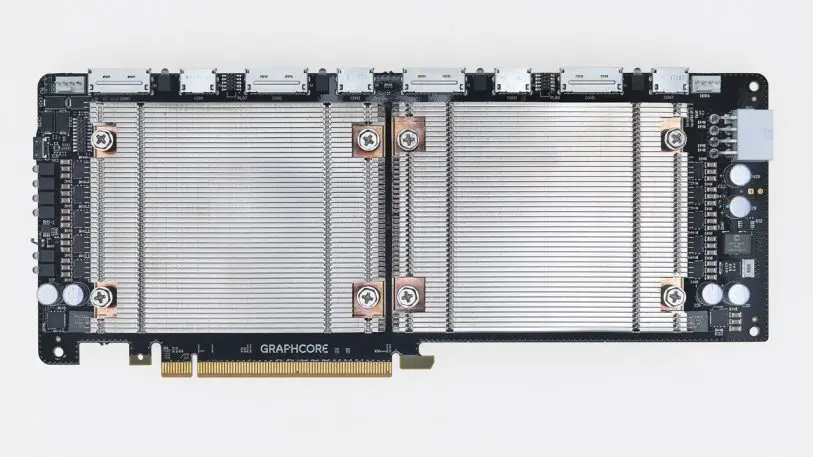
The colorful design is a far cry from most utilitarian computing hardware, which usually lacks distinct branding. And if an aesthetic is there, it’s typically very masculine. “There’s this influence from this very bro-y masculine world that will flow into the AI and machine learning world because of this relationship with the hardware,” says Jody Hudson-Powell, the Pentagram partner who worked on Graphcore’s brand identity. “We were interested in how we could create something that would feel completely different to existing hardware. So we created this brand that felt way softer, way more human.”
The bright colors, arranged differently on each processor, feel much more human than the standard black or chrome usually found in server farms. For Marshall, each box’s distinct design serves another purpose–to help IT engineers identify them. In fact, when he was touring server farms to get a sense of where Graphcore’s IPUs would sit, he noticed how the engineers had given server racks names, like Freddie and Bingo, to identify them if a server stopped working. Ideally, the differently patterned IPUs will help the engineers who are interacting with them differentiate between each box.
“It’s like one C-3PO, and one R2D2,” says Hudson-Powell. “You start to have a different relationship with the intelligence within the small box.”
Recognize your brand’s excellence by applying to this year’s Brands That Matter Awards before the early-rate deadline, May 3.
